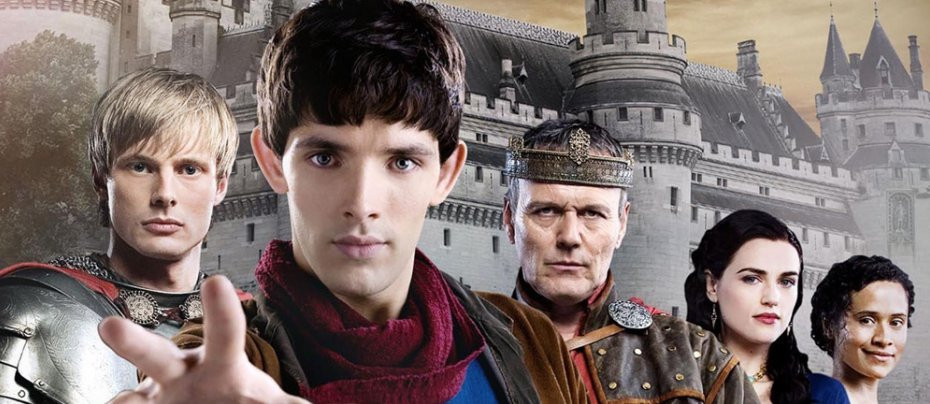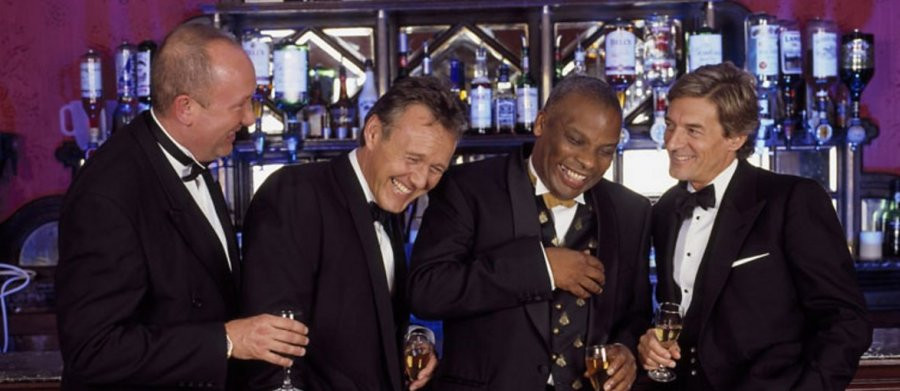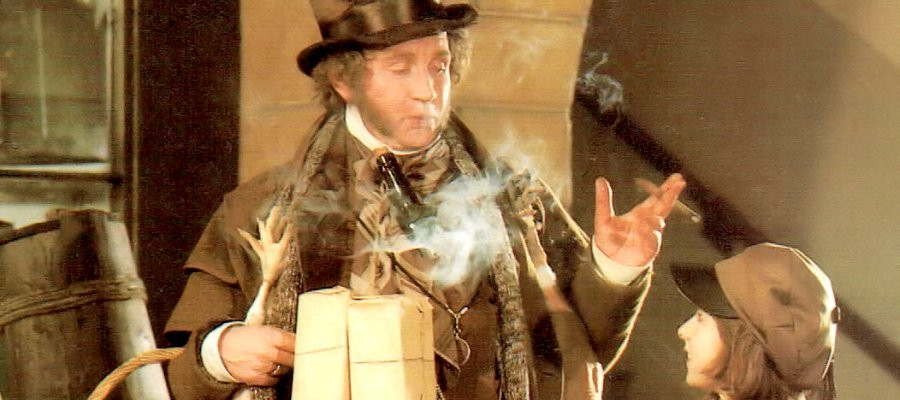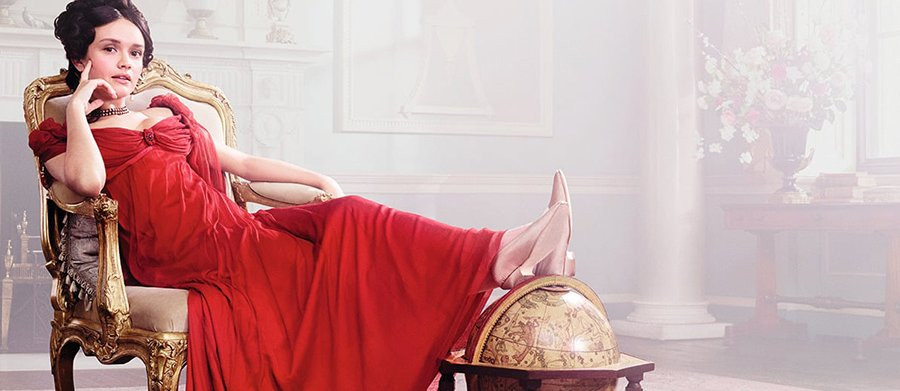
Vanity Fair (Mini-Series)
2018 - United KingdomTo every action there is a reaction, so it should be no surprise that times of greater moral permissiveness or laxity, depending on one's point of view, tend to provoke a reaction in the form of greater strictness, and vice versa. Both social liberals and social conservatives like to think the world is moving inevitably in their direction when the truth is that it is simply always moving.
In the Mid-19th Century that movement was definitely in the direction of greater strictness as louche Regency bucks became strait-laced Victorians, or at least that is the impression the Victorians themselves wanted to encourage - the reality, as ever, is a bit more complicated.
It was in this changing environment that the novelist William Makepeace Thackeray grasped a great commercial opportunity. He saw a potential market among the moral improvers of the rising generation for a novel that exposed and condemned the vices of the recent past. At the same time, he found, like many upright authors before and since, a lucrative secondary market among the less high minded by going into some detail about those vices.
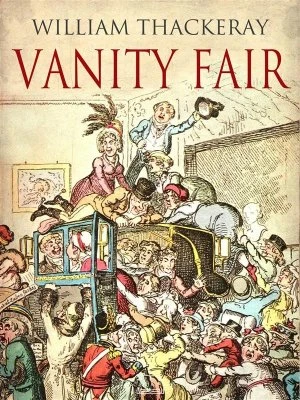
He was careful to remain on the side of virtue. The title of his work, Vanity Fair, comes from the most morally improving of all novels, John Bunyan's great Spiritual allegory, The Pilgrim's Progress, in which Vanity Fair is the great market of worldly temptations. Yet even as he makes it clear that vanity - especially in its most literal form of the protagonist's pathetic quest for what she thinks is social status - is ultimately in vain, Thackeray, great psychologist that he is, also explores why temptation is so tempting.
Given this attractive combination of high moral purpose and prurient interest in what it condemns, it is no surprise that his novel was a great success and its themes have made it particularly relevant in recent decades. It has been adapted no less than four times by the BBC - in 1956, 1967, 1987, and 1998. The 1967 version was particularly influential: it was the Beeb's first full colour drama and its international recognition, including an Emmy for its star, Susan Hampshire, basically established the Corporation's reputation for costume drama. The well cast 1987 version also deserves respect, even if, as a family friendly adaptation of a "literary classic," it rather pulls its punches.
The same criticism applies even more to the handsomely mounted but poorly scripted 2004 feature film starring Reese Witherspoon. As happens a lot with Hollywood features, the need to protect a star's wholesome public image unbalances the whole production: the protagonist Becky Sharp, played by Witherspoon, is made artificially sympathetic, missing the whole point of the novel.
So there was a gap in the market for a 'Vanity Fair' that took the story back to basics. This is what ITV and Amazon Studios did with their 2018 "miniseries," and in most respects they succeeded.
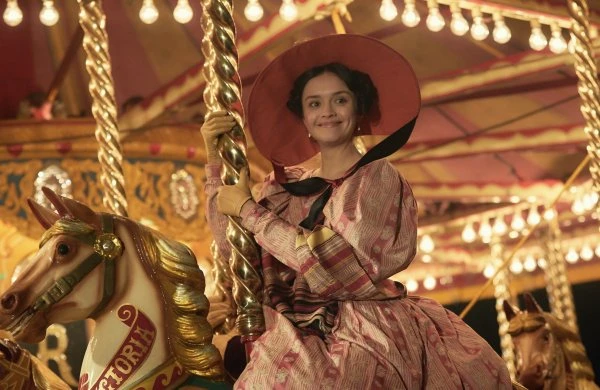
This begins with what may seem to be a surreal framing device in which Thackeray himself - played by avuncular Sir Michael Palin - serves as narrator while the characters ride on a merry-go-round, which may reference similar, if not quite identical, devices in the novel. We are being warned from the start that what we are seeing is not meant to be real. It is a fable from beginning to end, a point that is often missed.
It is therefore not meant to be realistic. Just as events in the novel play out in a Victorian idea of the Regency rather than a historically accurate setting, so the adaptation gives us a 21st Century idea of the period, which is even less accurate. Tongues are firmly in cheeks.
So Becky Sharp becomes a recognisably modern girl, far too openly cynical and sarcastic and impertinent to have lasted long in Jane Austen's society. These anachronisms are doubtless intended to encourage a modern audience to "relate to" her and like her better. If so, they fail. They are simply jarring.
They are also unnecessary, because Becky does not need them. She remains one of the most fascinating characters in all literature. Is she a proto-feminist, using only her wits, and the few personal advantages she is able to retain, to rise in a culture in which she has no power and which has stacked all the odds against her? Or is she a high functioning psychopath, exploiting all around her ruthlessly in her desire for financial security and illusory social status?
Thackeray never allows us to come to a firm conclusion, and the 2018 "miniseries" is true to him in this. There are in the end only two things about Becky we can say with certainty: she really is incredibly selfish; and it is understandable that she has become so, because, as a penniless orphan in a very competitive and class conscious culture, she has never had anyone looking out for her interests but herself.

It is greatly to the credit of Olivia Cooke that her Becky retains this ambiguity throughout many twists and turns. We never like her but we come to understand why others are charmed by her. We never sympathise with her but there are moments when we pity her. Above all, we are sometimes appalled by her but we are never bored by her.
Beneath those irritating modern gestures in her outward manner - due more to writing than acting choices one suspects - Cooke captures the essence of Becky Sharp with great skill. It was also in 2018 that she showed she could handle a leading role in a major feature, Ready Player One, which, combined with her success in the more subtle and sustained challenges of the leading role in the "miniseries," marked her as a talent to watch.

She is indeed the best thing about this version of Vanity Fair, and reason enough on her own to see it. Yet she was only the head of a very strong cast. Martin Clunes enjoys himself as a crusty Baronet, while the great Frances de la Tour seems born to play his apparently more liberal minded sister. Becky wins over both in different ways, but between them they teach her the lesson that her ruthless ambition is nothing compared with the even more ruthless self preservation of the aristocracy.

It is a lesson Becky failed to learn well, because she is taught it again, even more brutally, by a malevolent Marquess, played with diabolical relish by Anthony Stewart Head, who, since his return from America, seems to want to distance himself from the amiable Giles in Buffy the Vampire Slayer by playing villains and generally disagreeable types to the hilt. Sally Phillips is his badly treated wife, but we do not see enough of her - which is true of Sally Phillips in general.
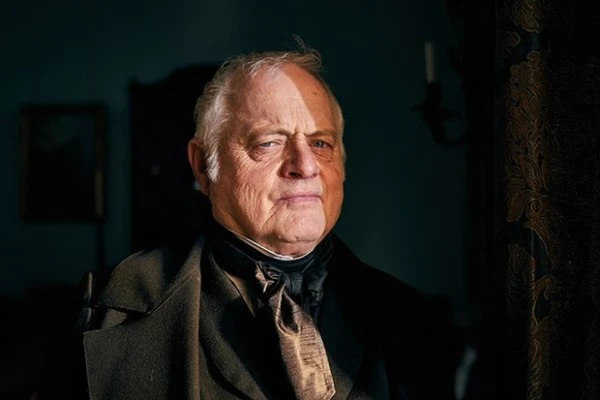
Robert Pugh and Simon Russell Beale are feuding merchants in the tradition of the Montagues and the Capulets, fathers to young lovers George Osborne and Amelia Sedley, who seem initially to be set up as the star crossed hero and heroine of the piece. If you have not read the book, or seen another of the adaptations, and think you know where all this is going, you are probably wrong.
Apart from anything else, unexpected events, not least Napoleon's escape from Elba, the Duchess of Richmond's Ball, and the little matter of the Battle of Waterloo, change everything.
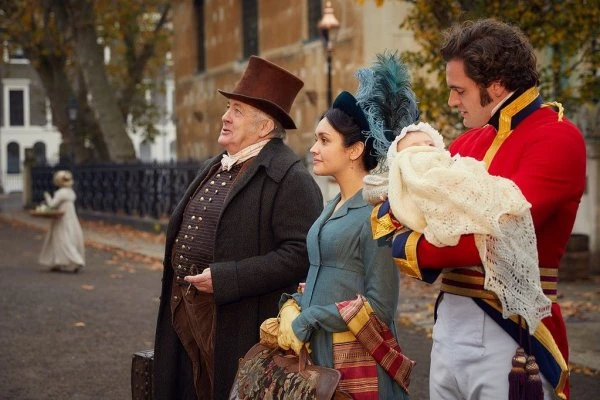
Ultimately, Vice brings its own punishment and Virtue is rewarded - eventually, when the virtuous are too exhausted by their suffering to care that much. Perhaps surprisingly, it is Becky's one wholly unselfish act that leads to this sort of happy resolution, and in return she is given a little reward of her own in the form of the opportunity of qualified happiness with one of the most likeable characters. However, the last lines hint at the novel's dark ending.
Overall, the production was successful when it was true to the novel and less so when it tried too hard to be modern. While it is the themes of gender, class, and morality that make the story as relevant to our own times as it was in the 19th Century, the precise issues at stake are not the same today as they were then. Interestingly, perhaps wisely, the 2018 production makes no very daring attempt to exploit the potential offered by the novel to engage with the issue of race. Regency attitudes to race were curious: slavery was still legal, but wealthy or well connected people of colour might still have limited access to high society. It was under Victoria, after the abolition of slavery, that more "scientific" notions of racism began to close doors, and the relative liberalism in this regard began to be seen as another aspect of Regency "moral laxity," alongside the drinking, gambling, and whoring.

While the 2018 Vanity Fair sticks to the pretty costume route and is never explicit, it was shown in an adult time slot and makes it clear that Becky is very much a part and a product of this Victorian view of the Regency. She is presented as a courtesan by choice who lived the high life on debt and her husband's winnings as a gambler. Thackeray implied this strongly, but his Victorian readers would not have tolerated him being too clear on that point. By contrast, a 2018 television audience would not have tolerated the production being too coy about it. Perhaps each generation gets the Vanity Fair it deserves, and the one for the 2010s was at least well directed, well produced, and very well acted.
Seen this show? How do you rate it?
Seen this show? How do you rate it?
Published on February 2nd, 2021. Written by John Winterson Richards for Television Heaven.


